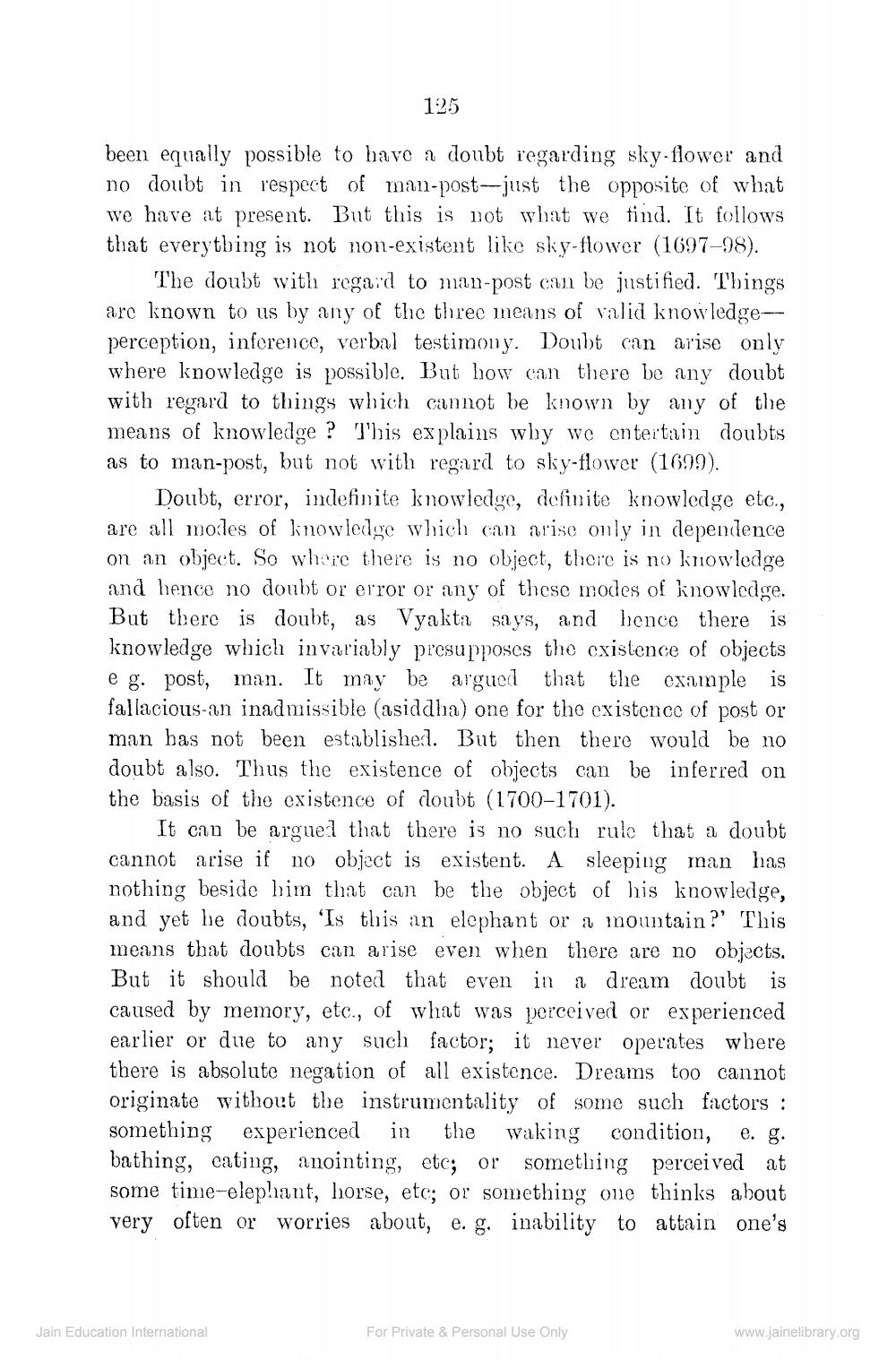________________
125
been equally possible to have a doubt regarding sky-flower and no doubt in l'espect of man-post-just the opposite of what we have at present. But this is not what we find. It follows that everything is not non-existent like sky-flower (1697–98).
The doubt with regard to man-post cu be justified. Things are known to us by any of the three means of valid knowledgeperception, inference, verbal testimony. Doubt can arise only where knowledge is possible. But how can there be any doubt with regard to things which cannot be known by any of the means of knowledge ? This explains why we entertain doubts as to man-post, but not with regard to sky-flower (1699).
Doubt, error, indefinite knowledge, definite knowledge etc., are all moles of knowledge which can arise only in dependence on an object. So where there is no object, there is no knowledge and hence no doubt or error or any of these modes of knowledge. But there is doubt, as Vyakta says, and hence there is knowledge which invariably presupposes the existence of objects eg. post, man. It may be argued that the example is fallacious-an inadmissible (asiddha) one for the existence of post or man has not been establisherl. But then there would be no doubt also. Thus the existence of objects can be inferred on the basis of the existence of doubt (1700-1701).
It can be argued that there is no such rule that a doubt cannot arise if no object is existent. A sleeping man has nothing beside him that can be the object of his knowledge, and yet he doubts, 'Is this an elephant or a mountain ?' This means that doubts can arise even when there are no objects. But it should be noted that even in a dream doubt is caused by memory, etc., of what was perceived or experienced earlier or due to any such factor; it never operates where there is absolute negation of all existence. Dreams too cannot originate without the instrumentality of some such factors : something experienced in the waking condition, e. g. bathing, cating, anointing, etc; or somethiing perceived at some time-elephant, horse, etc; or something one thinks about very often or worries about, e. g. inability to attain one's
Jain Education International
For Private & Personal Use Only
www.jainelibrary.org




